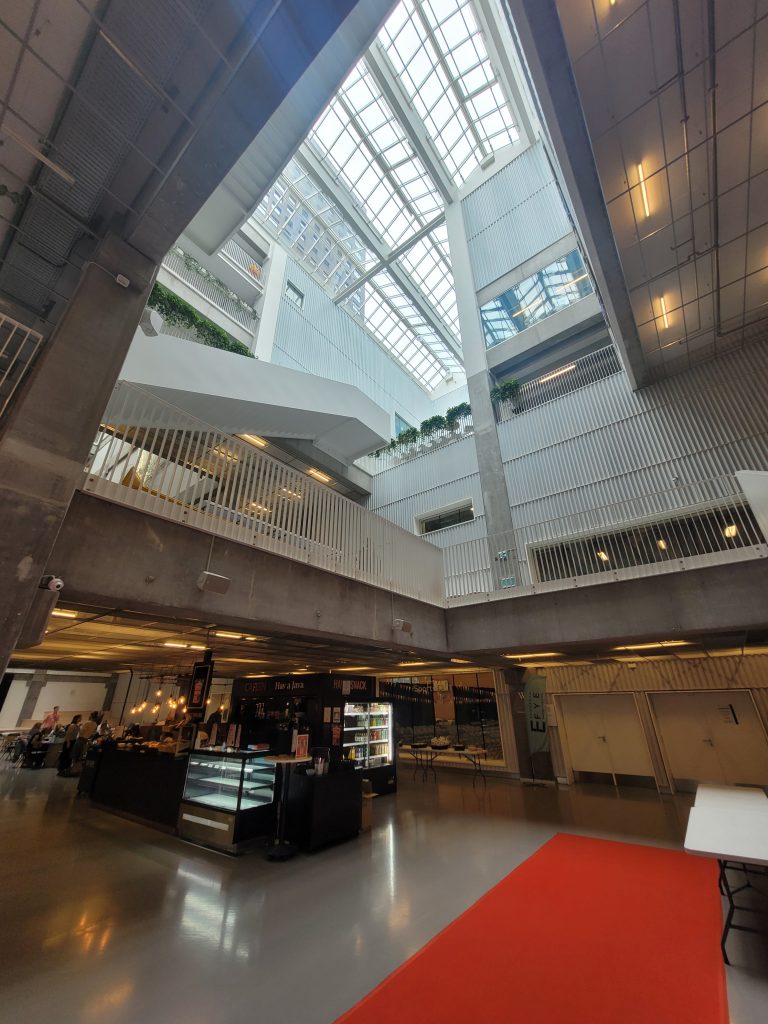by Dr Prue Goredema
From 29-31 May, Dr Andre Biederbeck and I were at the European First Year Experience, giving a presentation; learning about current and emerging issues in student support services and meeting and mingling with scores of university administrators and academics from across Europe and beyond.
The conference, which was held at University College Copenhagen, was subtitled ‘From ME to WE: Building first year communities’.
Many who are thoroughly ensconced in other areas of the academic realm may not realise the extent to which student support personnel pour over the minutiae of how to facilitate a smooth transition for students entering higher education. In seven parallel sessions that consisted of multiple formats – plenary speeches, papers, workshops, ‘show and tell’ talks and poster sessions – presenters schooled us on all manner of things: designing the ideal induction programme; motivating students and modifying mindsets; assisting students with special needs; working with faculty; using social media, apps and IT fruitfully; monitoring student mentor schemes; and of, course, the eponymous community building that underpinned all discussions.

Our own presentation was entitled ‘Do too many cooks spoil the broth? – Staff collaboration in designing peer-to-peer services for disparate student groups’. We discussed the design of the remote peer-mentoring scheme pioneered by studyFIT whereby students with disabilities or chronic illnesses are paired and then meet online as often as they wish, exploring aspects of their academic journey or perhaps sharing practicable tips on how to get by. This is a design that we now intend to expand and apply to other groups, for example first generation students, student caregivers, international students and students with vocational qualifications. Like other student support services personnel from across Europe, we are cognisant of the need to make the transition to university easier – even though our target group are, on average, 12-15 years older than other universities’ first year students.
This was the second time we were on the programme at the European First Year Experience. Last year, we also gave a presentation – at the EFYE conference which was held in Dundee, Scotland. And just when I was thinking that the execution of EFYE couldn’t have been more different (for example, the decadence of our Dundee dinner compared to the Spartan meals in Scandinavia) history decided to repeat itself, and in the worst way possible. Again, in the middle of the night, a blaring fire alarm awoke all and sundry at the hotel that we had haplessly chosen. I poked my head into the corridor and saw people scurrying down the corridor, confusion dripping out of their somnolent eyes. But I wasn’t going to be fooled again. I was inducted into the business of false fire alarms in the dead of night back in Dundee, and had there indeed been a conflagration at the Copenhagen hotel, I’d have been toast, because I chose to return to bed. Just as well. It turned out that everyone who made it downstairs merely wasted their time and caught an unnecessary chill.
Although sleep deprived, we did manage to get through the final day of the conference. In the third of three keynote speeches, Maria Bruselius-Jensen, Associate Professor in Youth Sociology at the Danish Centre for Youth Research discussed the divergent experiences of students with different backgrounds. This dovetailed well with our own Day One presentation on charting a common path when stakeholders’ needs are at odds. Will Carey, Chair of the EFYE Committee, commended the organisers and thanked the presenters and delegates for their participation. It was all in all an enlightening conference, and refreshed with ideas and the insights of our peers – most from other European universities and a handful from the US – we are keen to continue designing and deploying more services and refining those already in place at studyFIT and in my own niche: English Learning Support.



